Home Remedies For Herpes: 15 Effective Natural Treatments
Manage the discomfort and symptoms of herpes with simple ingredients from your pantry.
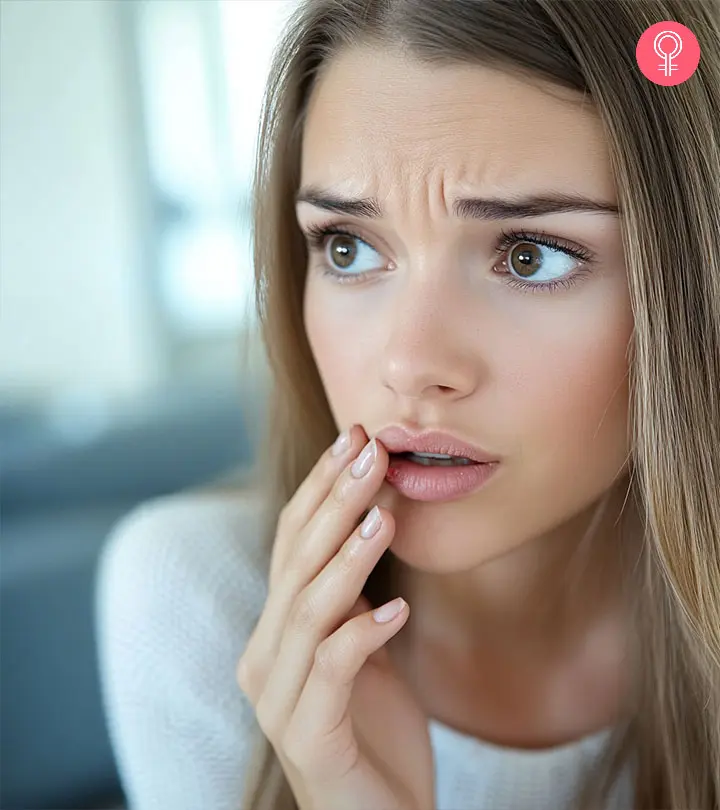
Image: Midjourney/ StyleCraze Design Team
The herpes simplex virus causes genital herpes. That means there is no recognized “cure” for preventing the recurrence of symptoms. However, during an HSV-1 or HSV-2 outbreak, you can use several home remedies for herpes to aid and provide comfort.
These tried-and-true home remedies can be a great alternative to heavy medication and may help relieve the swelling, itching, and stinging produced by outbreaks. Additionally, you may be able to reduce inflammation, irritation, and other symptoms by combining lifestyle changes and dietary supplements. Everything you’ll need for these treatments is probably already in your kitchen cabinet or medicine cabinet. However, it would help if you ideally used these holistic remedies along with a clinical treatment plan.
This article takes an in-depth look at herpes and the remedies that can help you with the condition. So, dive in.
In This Article
What Is Herpes?
The name of this infection is eponymous to the virus that causes it – the Herpes simplex virus (HSV). When the herpes virus comes in contact with your body, it can easily enter the lower layers of your skin or even the bloodstream and cause infection. Oral herpes is characterized by sores on the mouth or face, whereas genital herpes causes sores on the genitals and anal areas. Other parts of the body can also be affected by this infection and can develop sores, but this is not as common as the oral or genital forms of herpes (1).
Bek Antonucci, the host of the Raw, Real and Vulnerable podcast, shared her experience of getting her herpes diagnosis and the painful symptoms she experienced the first time. She said, “I started experiencing intense pain in my stomach. It’s causing me pain to urinate (i).”

A survey conducted on 9,544 US adults found the prevalence of HSV-1 was 47.8% and HSV-2 was 11.9%. Further, the prevalence of both types of herpes increased with age from 27% among those between 14 – 19 years to 41.3% among those between 20-29 years of age.
 Trivia
TriviaKey Takeaways
- In the herpes infection, painful and contagious sores form mainly on the genitals or around the mouth.
- Ingredients like oregano oil, baking soda, tea tree oil, and lemon may counter the severity of herpes symptoms due to their antiviral properties.
- Taking Lysine supplements may prevent the herpes virus from replicating and reduce the severity of oral herpes.
- A balanced diet and adequate hydration can help strengthen your immune system and may help manage the herpes infection.
Home Remedies For Herpes
While there is no specific cure for herpes, doctors administer antiviral medications, topical creams, ointments, and pills to prevent its intensity and recurrence.
 Quick Tip
Quick TipHowever, using some natural remedies can also help you deal with the symptoms and live in comfort. Listed below are the best natural remedies for herpes:
Treat Herpes With These Effective Home Remedies
- Lysine
- Tea Tree Oil
- Oregano Oil
- Baking Soda
- Lemon Balm
- Echinacea
- Epsom Salt
- Aloe Vera Gel
- Olive Oil
- Cornstarch
- Goldenseal
- Herbal Tea
- Green Tea
- Licorice Root
- Domeboro Powder
1. Lysine For Herpes
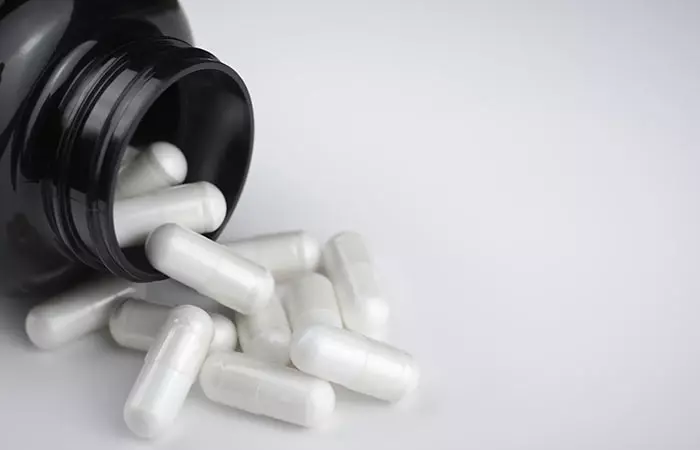
What You Need
Lysine capsules
What You Have To Do
Take 500mg dosage of lysine thrice a day.
How Often You Need To Do This
Continue taking the capsules thrice a day until the infection clears. After that, take one capsule every day for three months to prevent recurrence.
Why This Works
This simple treatment works excellently, even for recurrent HSV infections.
Lysine stops the virus from replicating and infecting the human cells. It has been shown to reduce the severity and healing time of herpes (2). Please keep in mind that this remedy does not work for genital herpes.
2. Tea Tree Oil For Herpes
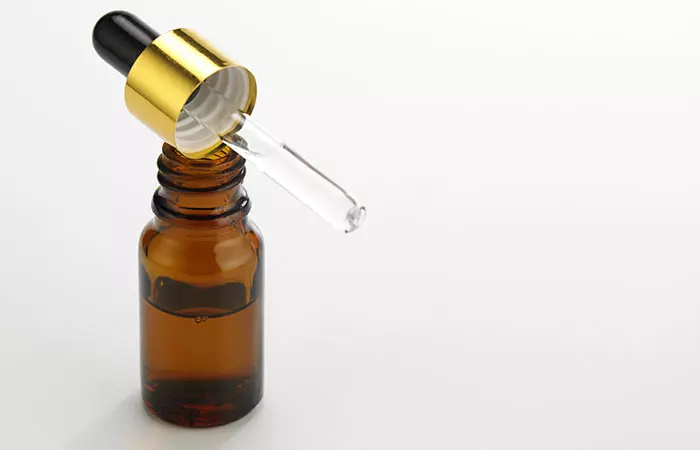
What You Need
- Tea tree oil
- Cotton ball
- Eye dropper
What You Have To Do
- Apply a small amount of this oil on the affected area using a cotton ball or the eye dropper.
- Leave it on.
How Often You Need To Do This
Reapply the oil thrice a day.
Why This Works
Tea tree oil has been used since ancient times to treat numerous skin problems.
It can be used to alleviate the discomfort and pain caused by herpes sores. It is also an antiviral agent and will kill the virus (3).
Note: Tea tree oil is potent and can cause skin irritation or allergic reactions. It is recommended to dilute it with a carrier oil, such as olive or coconut, or with water prior to application.
3. Oregano Oil For Herpes
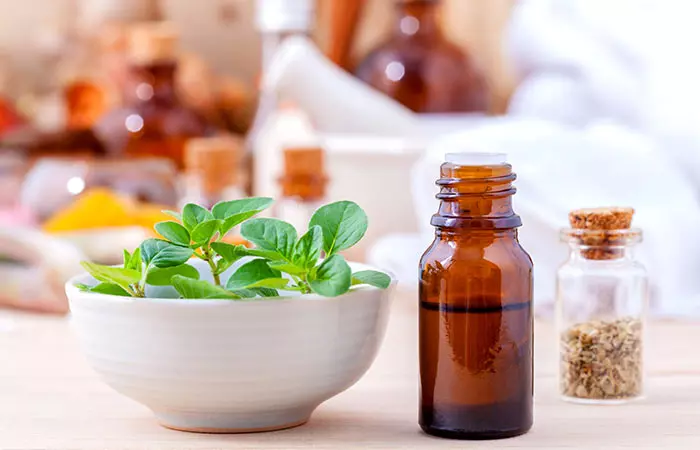
What You Need
- Oregano oil
- Cotton ball or eye dropper
What You Have To Do
Apply a drop or two of this essential oil with a cotton ball on the affected area. Leave it to air-dry.
How Often You Need To Do This
Repeat this twice or thrice a day until the herpes infection subsides.
Why This Works
The carvacroli A naturally occurring compound with antibacterial, anti-inflammatory, and antioxidant properties that can be found in oregano, thyme, and other herbs. component of oregano oil is responsible for its antiviral activity.
This remedy has been proven to work even for herpes viruses that have developed a resistance to the aciclovir, a commonly used antiviral for herpes therapy (4). Oregano oil also has anti-inflammatory and analgesic properties (5).
4. Baking Soda For Herpes
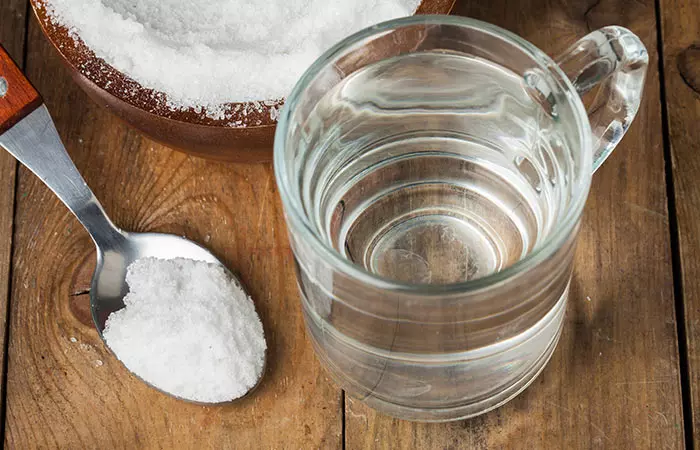
What You Need
- 1 tablespoon baking soda
- 2-3 tablespoons water
- Cotton balls
What You Have To Do
- Mix the baking soda in the water to form a solution.
- Gently rub cotton balls soaked in this solution on and around those sores.
- Do not wash away the solution. Use different cotton balls every time to prevent further infection.
For genital herpes, you can also add a medium-sized cup of baking soda to warm water in your bath tub and soak in it for 10 to 15 minutes, twice a day.
How Often You Need To Do This
Repeat this three to four times in a day.
Why This Works
If the herpes sores on your body are oozing, you may resort to using baking soda to dry them up. This ingredient may help dry the skin surface quickly and heal the sores (6). Baking soda also soothes the skin and is a natural antiseptic, which may help manage herpes on the skin (7).
5. Lemon Balm For Herpes
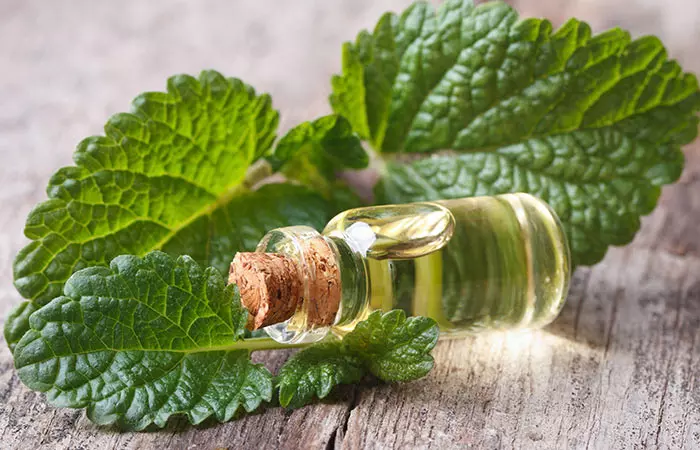
What You Need
- 2-3 ml lemon balm tincture
- A cup of warm water
- Cotton ball
What You Have To Do
- Add the lemon balm tincture to the water and apply this to the affected area using the cotton.
- Leave it on.
You can also brew some lemon balm tea and drink it twice a day.
How Often You Need To Do This
Apply this twice or thrice a day.
Why This Works
Lemon balm is extremely soothing for the skin, and at the same time, it exerts antiviral effects on the herpes virus (8).
6. Echinacea For Herpes
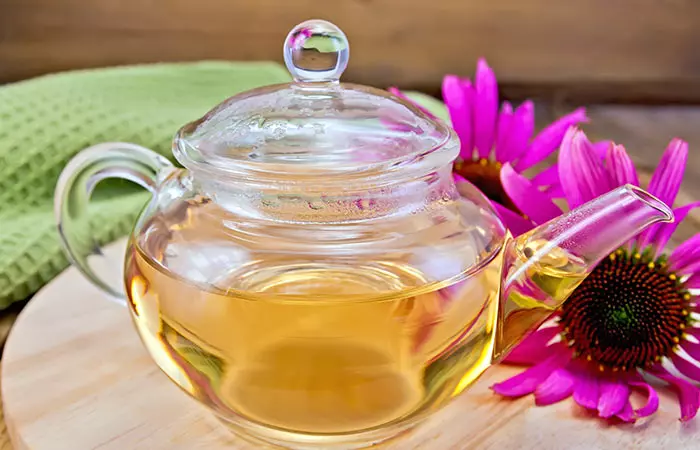
What You Need
- Echinacea tea bag or dried herbs
- A cup of hot water
What You Have To Do
- Steep the tea bag in hot water for a few minutes and then remove it.
- Sip on this decoction in between meals.
How Often You Need To Do This
Drink up to four cups of echinacea tea in a day.
Why This Works
The herpes virus is susceptible to the antiviral activity of this herb (9). Echinacea also works indirectly on the herpes infection by stimulating the body to produce a strong antiviral effect on the virus (10).
7. Epsom Salt For Herpes
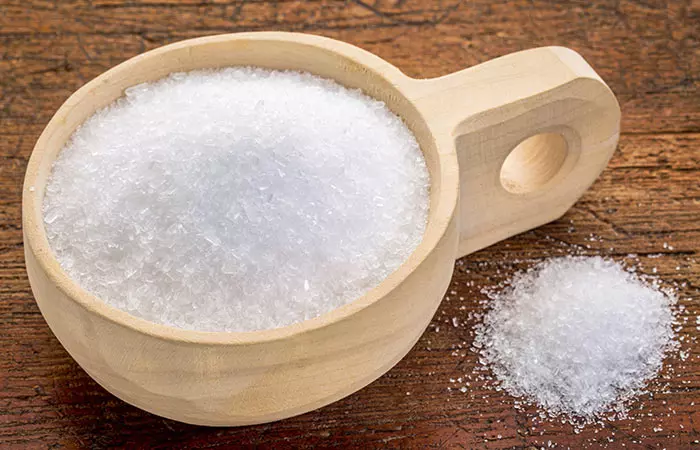
What You Need
- 1 cup Epsom salt
- Warm water
- Bath tub
What You Have To Do
- Add the Epsom salt to the bath tub water and mix well.
- Soak in this for about 15 minutes. Shower as usual.
How Often You Need To Do This
Repeat this twice a day.
Why This Works
This is one of the best home remedies for herpes that works well for genitals. The salt soak will soothe the itching and pain caused by the sores (11). It will also dry out the sores because of its hygroscopic nature (12).
Note: Avoid using hot water on sensitive areas, as it may increase inflammation and discomfort.
8. Aloe Vera Gel For Herpes
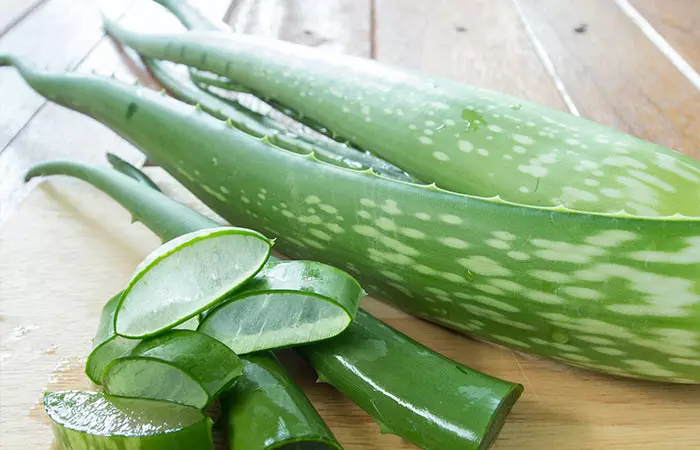
What You Need
Fresh aloe vera gel
What You Have To Do
- Take out fresh gel from an aloe vera leaf and with a clean finger, apply it on the affected area.
- Let it dry.
You can also use organic aloe vera gel that you find in the market.
How Often You Need To Do This
Do this thrice a day.
Why This Works
Aloe vera has more than 70 potentially active components that exert multiple beneficial effects on the skin. Application of this gel will reduce inflammation, soothe and moisturize the skin, have antiseptic and antiviral effects, and also quicken the healing process (13).
9. Olive Oil For Herpes
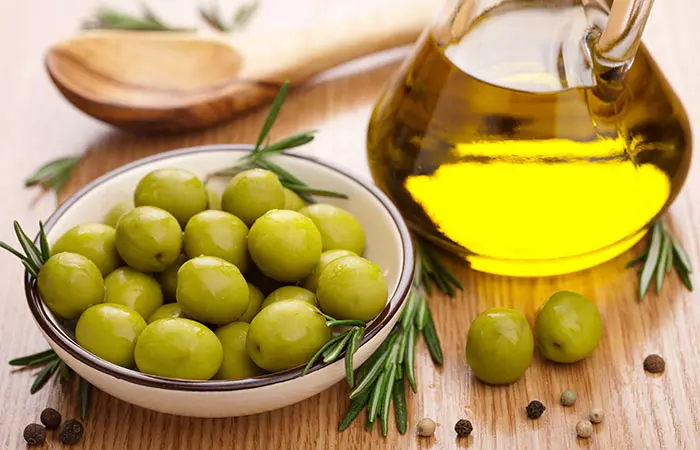
What You Need
- A cup of olive oil
- 10 drops of lavender oil
- 2 tablespoons beeswax
- Cotton ball
What You Have To Do
- Warm up the olive oil and blend with the lavender oil. Then, add some beeswax.
- Heat it up and after some time, remove from heat.
- When it cools down, apply on the sores using a cotton ball.
How Often You Need To Do This
Apply this twice or thrice during the day.
Why This Works
This herpes home remedy will give immense relief from the pain and itching that accompany the sores. Olive oil has proven antimicrobial and antiviral properties (14). It is not only good for cardiac health, but can also be used to treat herpes infection. Lavender oil will soothe the inflamed skin, while beeswax will moisturize it (15, 16).
10. Cornstarch For Herpes
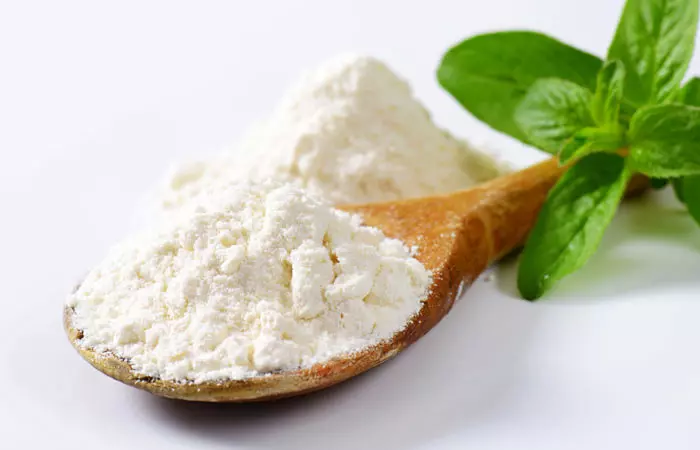
What You Need
- Cornstarch
- Moist cotton ball
What You Have To Do
Dab the cornstarch on the herpes sores using the moist cotton ball.
How Often You Need To Do This
Reapply every few hours.
Why This Works
Cornstarch will dry out the sores and reduce the itching and chaffing (17).
11. Goldenseal For Herpes
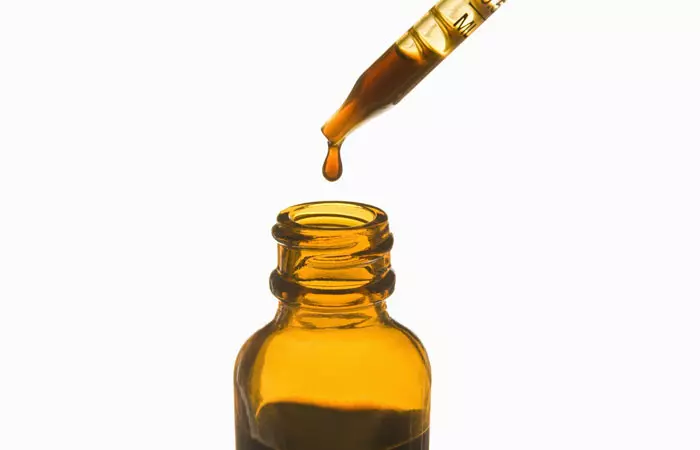
What You Need
- Goldenseal tincture
- Q-tip
What You Have To Do
With the help of the Q-tip, apply the tincture directly on the sores and leave it on.
How Often You Need To Do This
Do this thrice a day.
Why This Works
Like echinacea, goldenseal is an immune-boosting herb. Its astringenti A common ingredient in skincare products, this substance tightens and compresses body tissues to tone, reduce oiliness, and shrink pores. and anti-inflammatory properties will give long-term relief from the herpes infection (18).
12. Herbal Tea For Herpes
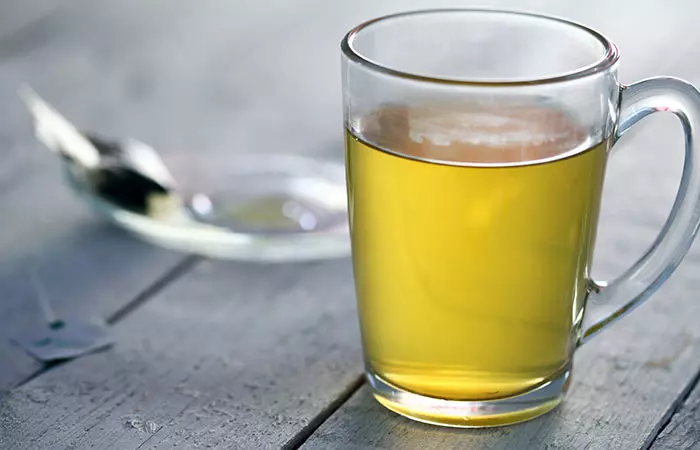
What You Need
- A few sage leaves
- A few thyme leaves
- A cup of boiling water
What You Have To Do
- Steep the herbs in hot water for a few minutes.
- Strain and drink this herbal tea.
How Often You Need To Do This
Drink two to three cups in a day.
Why This Works
Sage is an antiseptic and an astringent, and thyme is an effective antiviral that was tested and tried against the herpes virus (19, 20). This is a potent herbal combo to eliminate the herpes virus from your body.
13. Green Tea For Herpes
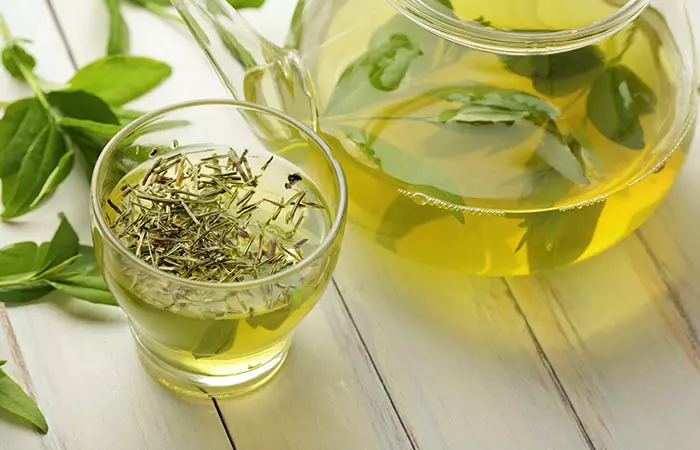
What You Need
- Green tea bag or leaves
- A cup of hot water
What You Have To Do
- Steep the green tea for a few minutes. Strain and drink the decoction.
- Add a dash of honey and lemon juice for flavor.
How Often You Need To Do This
Drink three to four cups in a day.
Why This Works
Green tea has profound health benefits. Its active antioxidants may help in prevention of the outbreaks and recurrence of the herpes virus outbreak. Studies suggest that green tea also has antiviral properties, and hence, naturopaths recommend a cup of green tea instead of coffee to patients suffering from herpes (21).
14. Licorice Root For Herpes
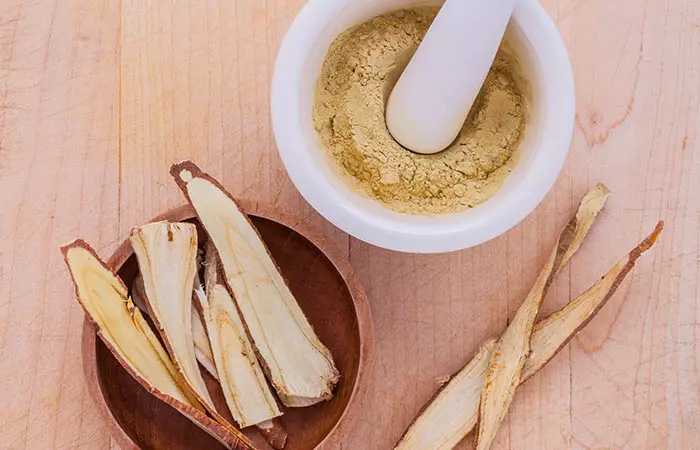
What You Need
- Licorice root powder
- Water
What You Have To Do
- Mix enough water with the licorice root powder to form a paste.
- Apply this on the herpes sores and let it dry.
- Leave it on for about 20 to 30 minutes. Then, rinse with water.
How Often You Need To Do This
Apply this twice a day.
Why This Works
Licorice root is useful in treating herpes because of its antiviral, antimicrobial, and anti-inflammatory properties (22). You should ideally opt for the standard variant over the de-glycyrrhizinatedi Processed licorice that does not have glycyrrhizin, a beneficial chemical compound that can heal stomach ulcers and fight infections. one for maximum benefits.
15. Domeboro Powder For Herpes
What You Need
- Domeboro powder sachet
- Water
- Clean cloth
What You Have To Do
- Follow the instructions on the packet to make a solution with the domeboro powder and water.
- Dip the cloth in this and place it on the affected area for 10 to 15 minutes.
How Often You Need To Do This
Repeat this every few hours.
Why This Works
Domeboro powder is a commonly used astringent in hospitals, especially for ulcers, sores, and lesionsi Skin areas different from the skin surrounding them, caused mainly due to injury, which may be cancerous or non-cancerous. . It also relieves the pain and itchiness (23).
Note: Although natural remedies may improve overall health, they cannot address severe medical disorders or take the place of professional treatment. Seeking advice from a healthcare provider ensures accurate diagnosis, secure treatment, and appropriate management of health issues.
Herpes sores are among the most common and defining symptoms of the condition. Learn more about them below.
How Long Do Herpes Sores Last?
The duration of the sores vary from individual to individual. Generally, the first outbreak can last anywhere between 2 to 4 weeks in most people. In this period, the sores build up, break open, and release the fluid. The lesions usually become crusted and heal without leaving any scars (24).
Once you contract this condition, you may experience recurrent episodes due to certain triggers. Find out more about them below.
What Triggers Herpes Outbreaks?
Repeated herpes outbreaks are signs that the dormant virus is getting active. They can be triggered by a compromised immune system, hormonal fluctuations, stress, or alcohol abuse (25), (26). The sores could also be a side effect of certain drugs, diet, or UV exposure that weakens the immune system.
Infographic: Natural Remedies To Soothe Herpes Sores
You can manage some of the common symptoms of herpes with a range of ingredients. These oils and tinctures are packed with the finest phytonutrientsi Compounds with antioxidant properties that help prevent damage to cells throughout the body and have potential anti-cancer effects. with potent biological properties. A few drops of these nourishing liquids are enough to relieve you from your woes. Check out the infographic below to learn more about the quick, natural remedies you can use to soothe cold sores.
Some thing wrong with infographic shortcode. please verify shortcode syntax
The home remedies for herpes provide comfort and aid in managing herpes. These remedies require ingredients that are commonly found in every kitchen and household medicine cabinet. Tea tree oil, green tea, oregano oil, lemon balm, Lysine, aloe vera gel, herbal tea, Epsom salt, and domeboro powder are some of the ingredients used to manage herpes. Along with these remedies, healthy nutrition, and adequate hydration also help manage infection. Although these remedies may not cure herpes completely, they help relieve its symptoms effectively. So, try these remedies along with your prescribed medication.
Frequently Asked Questions
Are cold sores the same thing as herpes?
Yes. Cold sores are the same thing as herpes because they are caused by the herpes virus. However, when it comes to genital herpes, it is a different subtype of the herpes virus that causes it. Since both conditions fall under the herpes infection, knowing how to get rid of cold sores may help you manage genital herpes as well..
What are the symptoms of herpes?
The symptoms of oral herpes are:
• Mouth ulcers
• Sores around the mouth or on the face
• Swollen glands
• Pain during swallowing
• Itching and burning sensation of the lips and/or mouth area (1)
The symptoms of genital herpes differ from oral herpes and are as follows:
• Painful blisters containing a clear or straw-colored fluid in the genital and anal area
• Painful blisters on other parts of the body like the tongue, mouth area, eyes, fingers, etc.
• Tingling and burning sensation around the genitals
• Swollen lymph glands in the groin
• Feeling ill
• Fever
• Muscle pain in the lower half of the body like the thighs, lower back, knees, etc. (26)
What does genital herpes look like?
Genital herpes infection starts off with a red, itchy spot in the genital area that develops into a blister in a few hours. These blisters or lesions soon swell up to form small vesicles, which contain either a clear or a pale yellow liquid that can ooze out. If these blisters burst, they can easily form scabsi Protective crusts that help with tissue regeneration and infection prevention that develop over wounds as a result of the body's natural healing process. and scars.
How do you keep herpes dormant?
Strengthening your immune system and taking the required vaccines may help keep herpes dormant as studies have shown that immunocompromised individuals are at the highest risk of developing herpes (27).
Does herpes come back in the same spot?
Yes, it is common for herpes to reappear at the same spot or at least along the same nerve region.
Does herpes weaken over time?
Anecdotal evidence suggests that recurrent outbreaks of herpes gradually decrease in terms of the severity of the symptoms and the frequency of the outbreaks.
Drink plenty of fluids and follow a healthy diet. The herpes virus attacks people with a weak immune system. Try to keep the elements of stress at bay as stress can induce acid levels in the stomach and impact your immune system in a negative way. Try stress management measures like yoga and meditation and take adequate rest to stay stress-free as much as possible.
Illustration: Effective Home Remedies For Herpes & How To Use Them
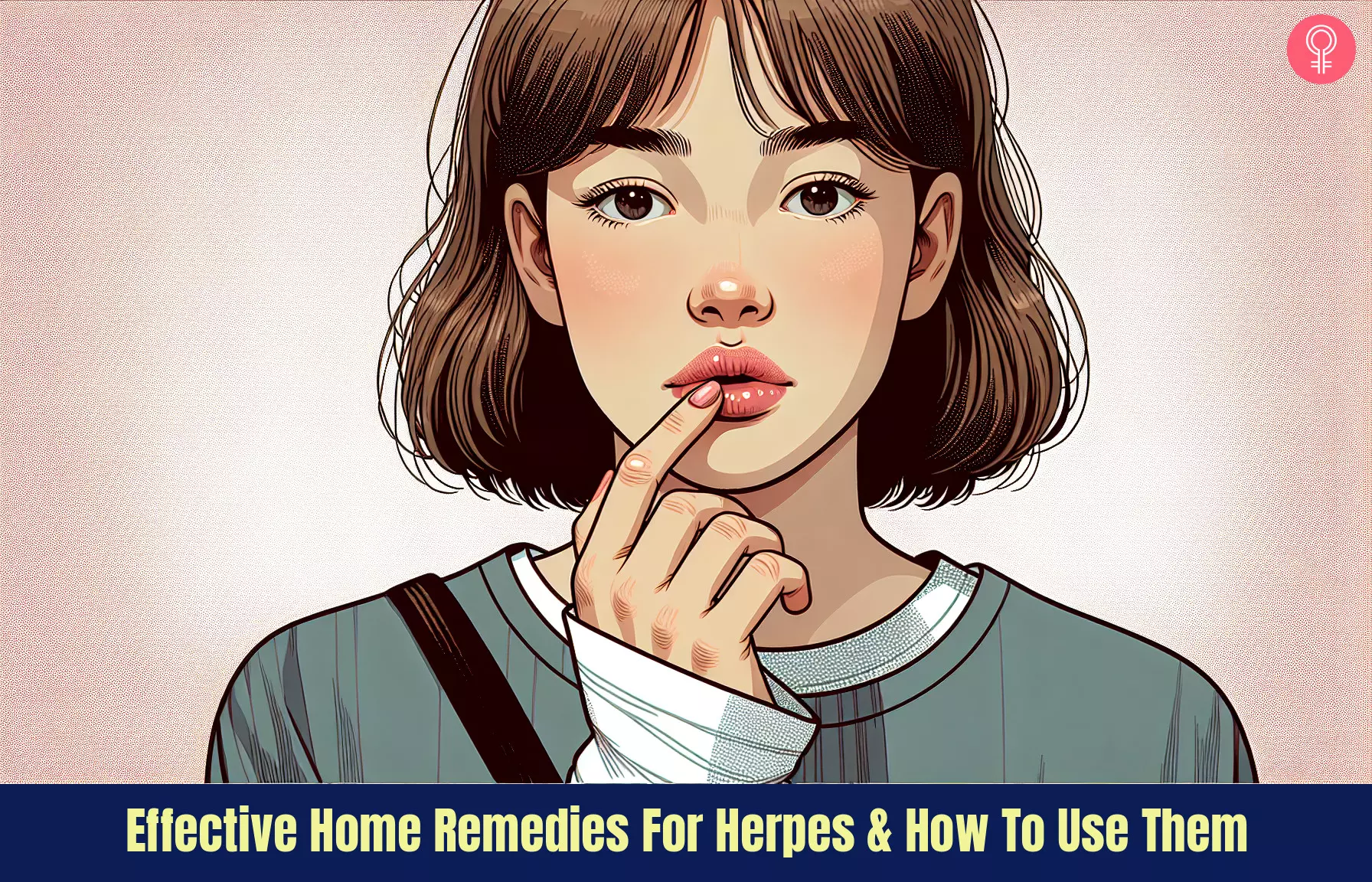
Image: Dall·E/StyleCraze Design Team
Learn about natural remedies for herpes to reduce pain and itchiness. Watch this video to know about dietary changes, supplements, and lifestyle modifications to follow to manage the symptoms.
Personal Experience: Source
StyleCraze's articles are interwoven with authentic personal narratives that provide depth and resonance to our content. Below are the sources of the personal accounts referenced in this article.
i. My Herpes Story | Overcoming the shame of genital herpes.https://www.youtube.com/watch?v=7eHQnItydj0
References
Articles on StyleCraze are backed by verified information from peer-reviewed and academic research papers, reputed organizations, research institutions, and medical associations to ensure accuracy and relevance. Read our editorial policy to learn more.
- Herpes Simplex Virus
https://www.who.int/news-room/fact-sheets/detail/herpes-simplex-virus - Success of L-lysine therapy in frequently recurrent herpes simplex infection. Treatment and prophylaxis
https://pubmed.ncbi.nlm.nih.gov/3115841/ - Melaleuca alternifolia (Tea Tree) Oil: a Review of Antimicrobial and Other Medicinal Properties
https://www.ncbi.nlm.nih.gov/pmc/articles/PMC1360273/ - Antiviral activity of the Lippia graveolens (Mexican oregano) essential oil and its main compound carvacrol against human and animal viruses
https://www.ncbi.nlm.nih.gov/pmc/articles/PMC3768712/ - Biological and pharmacological activities of carvacrol and carvacrol bearing essential oils
https://pubmed.ncbi.nlm.nih.gov/19075694/ - Canker sore remedies: baking soda
https://pubmed.ncbi.nlm.nih.gov/11949979/ - Antibacterial activity of baking soda
https://pubmed.ncbi.nlm.nih.gov/12017929/ - Melissa officinalis L: A Review Study With an Antioxidant Prospective
https://www.ncbi.nlm.nih.gov/pmc/articles/PMC5871149/ - Applications of the Phytomedicine Echinacea purpurea (Purple Coneflower) in Infectious Diseases
https://www.ncbi.nlm.nih.gov/pmc/articles/PMC3205674/ - Enhancement of Innate and Adaptive Immune Functions by Multiple Echinacea Species
https://www.ncbi.nlm.nih.gov/pmc/articles/PMC2362099/ - Bathing in a magnesium-rich Dead Sea salt solution improves skin barrier function, enhances skin hydration, and reduces inflammation in atopic dry skin
https://pubmed.ncbi.nlm.nih.gov/15689218/ - Magnesium Sulfate
https://pubchem.ncbi.nlm.nih.gov/compound/magnesium_sulfate - ALOE VERA: A SHORT REVIEW
https://www.ncbi.nlm.nih.gov/pmc/articles/PMC2763764/ - Oleuropein in Olive and its Pharmacological Effects
https://www.ncbi.nlm.nih.gov/pmc/articles/PMC3002804/ - Lavender and the Nervous System
https://www.ncbi.nlm.nih.gov/pmc/articles/PMC3612440/ - A randomized controlled pilot study comparing aqueous cream with a beeswax and herbal oil cream in the provision of relief from postburn pruritus
https://pubmed.ncbi.nlm.nih.gov/22665131/ - Intertrigo and common secondary skin infections
https://pubmed.ncbi.nlm.nih.gov/16156342/ - Goldenseal (Hydrastis canadensis L.) extracts synergistically enhance the antibacterial activity of berberine via efflux pump inhibition
https://www.ncbi.nlm.nih.gov/pmc/articles/PMC3100400/ - Chemistry, Pharmacology, and Medicinal Property of Sage (Salvia) to Prevent and Cure Illnesses such as Obesity, Diabetes, Depression, Dementia, Lupus, Autism, Heart Disease, and Cancer
https://www.ncbi.nlm.nih.gov/pmc/articles/PMC4003706/ - Susceptibility of Drug-Resistant Clinical Herpes Simplex Virus Type 1 Strains to Essential Oils of Ginger, Thyme, Hyssop, and Sandalwood
https://www.ncbi.nlm.nih.gov/pmc/articles/PMC1855548/ - Beneficial effects of green tea: A literature review
https://www.ncbi.nlm.nih.gov/pmc/articles/PMC2855614/ - The antiviral and antimicrobial activities of licorice, a widely-used Chinese herb
https://www.ncbi.nlm.nih.gov/pmc/articles/PMC4629407/ - Toxic Epidermal Necrolysis in dogs. A case report
https://www.researchgate.net/publication/331010980_Toxic_Epidermal_Necrolysis_in_dogs_A_case_report - Necrodestructive Herpes Zoster
https://www.ncbi.nlm.nih.gov/pmc/articles/PMC3352639/ - Herpesviruses: latency and reactivation – viral strategies and host response
https://www.ncbi.nlm.nih.gov/pmc/articles/PMC3809354/ - Increased prevalence of herpes simplex virus type 2 among adolescent women with alcohol use disorders
https://pubmed.ncbi.nlm.nih.gov/11869923/ - Herpes Simplex Virus 1 Infection of Neuronal and Non-Neuronal Cells Elicits Specific Innate Immune Responses and Immune Evasion Mechanisms
https://www.frontiersin.org/journals/immunology/articles/10.3389/fimmu.2025.644664/full
Read full bio of Dr. Vindhya L Veerula
Read full bio of Kushneet Kukreja
Read full bio of Ramona Sinha
Read full bio of Monomita Chakraborty







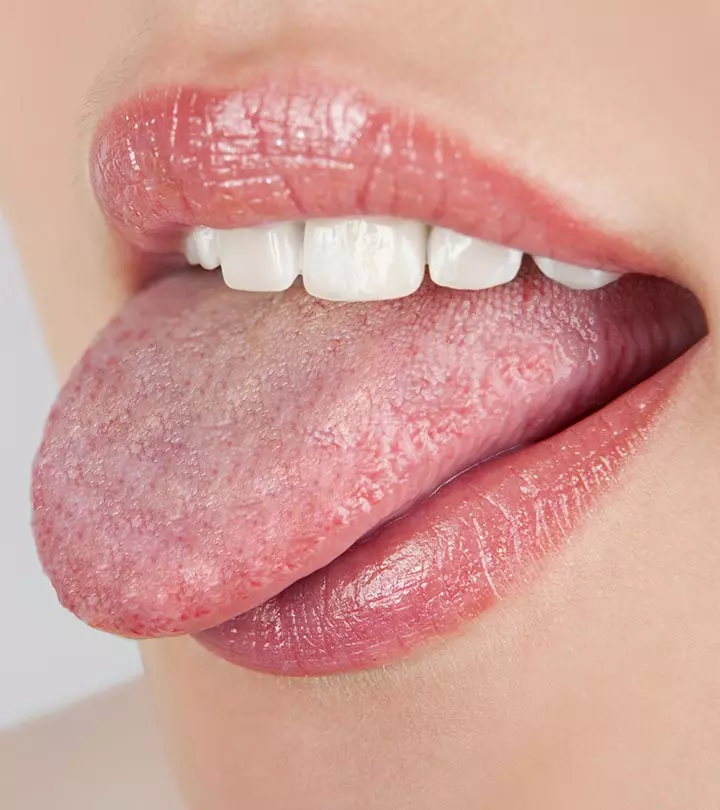
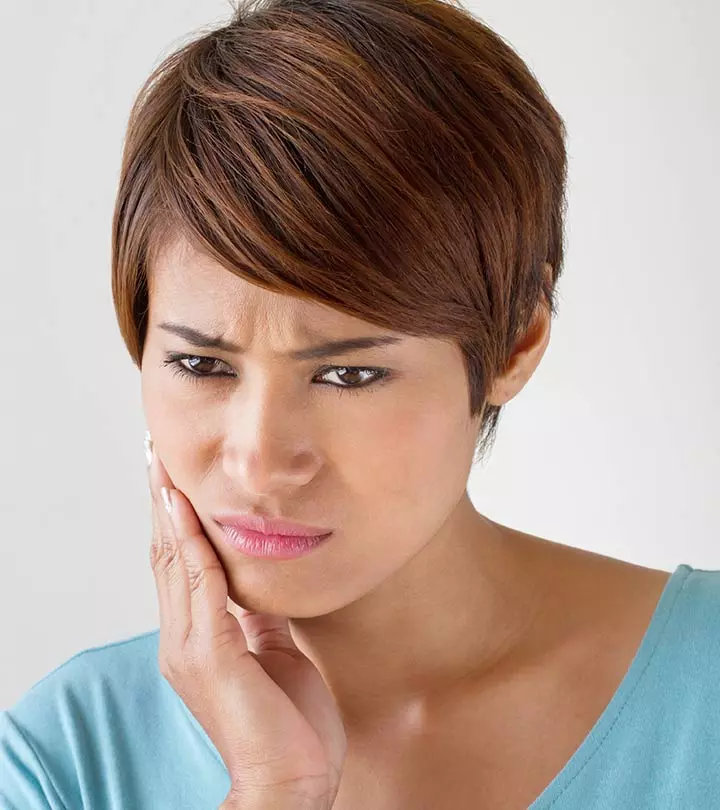
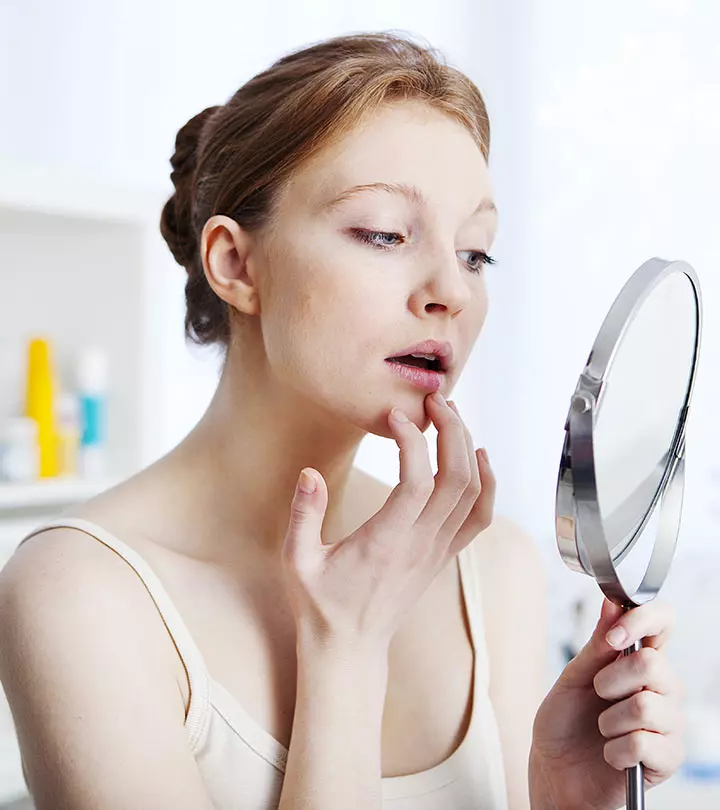
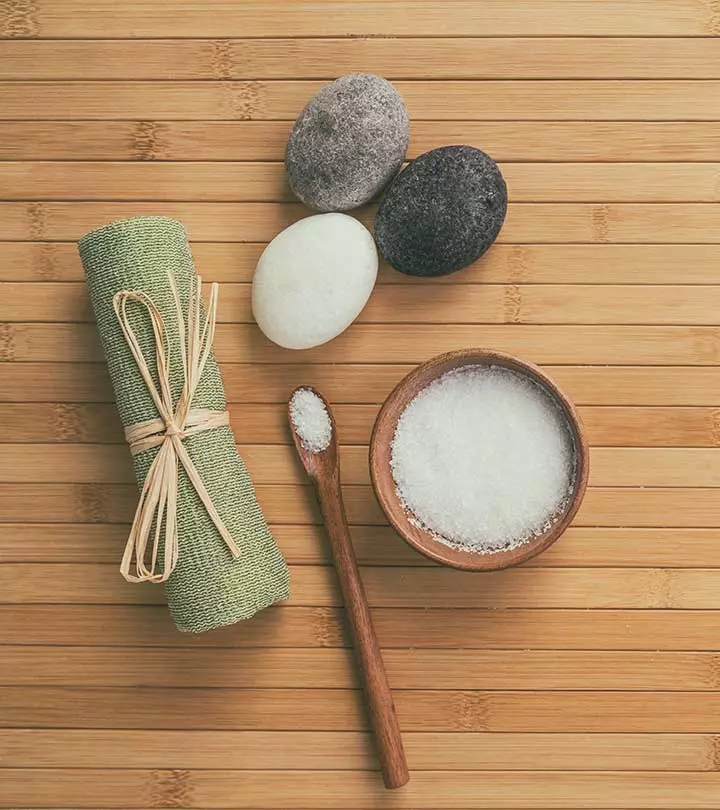

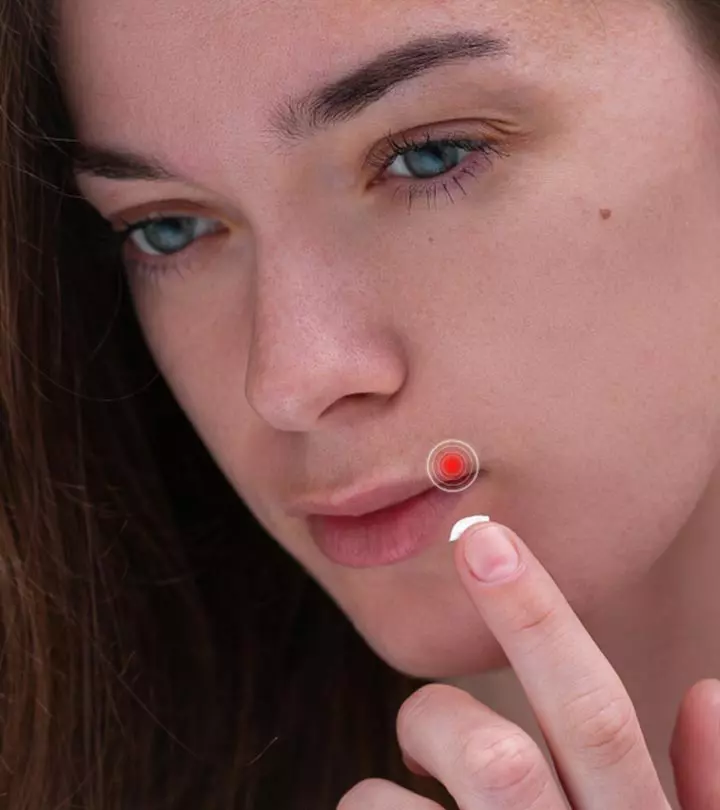

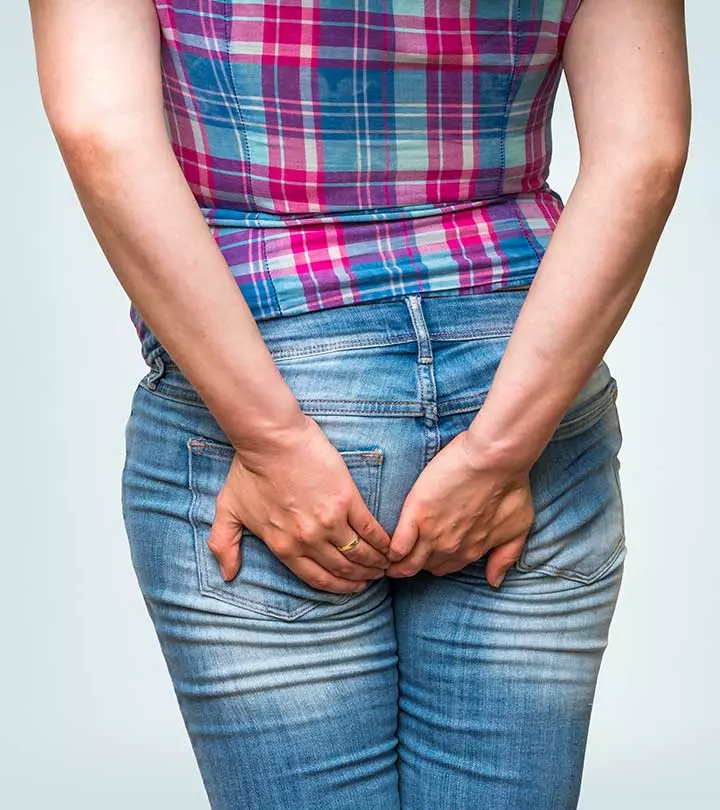
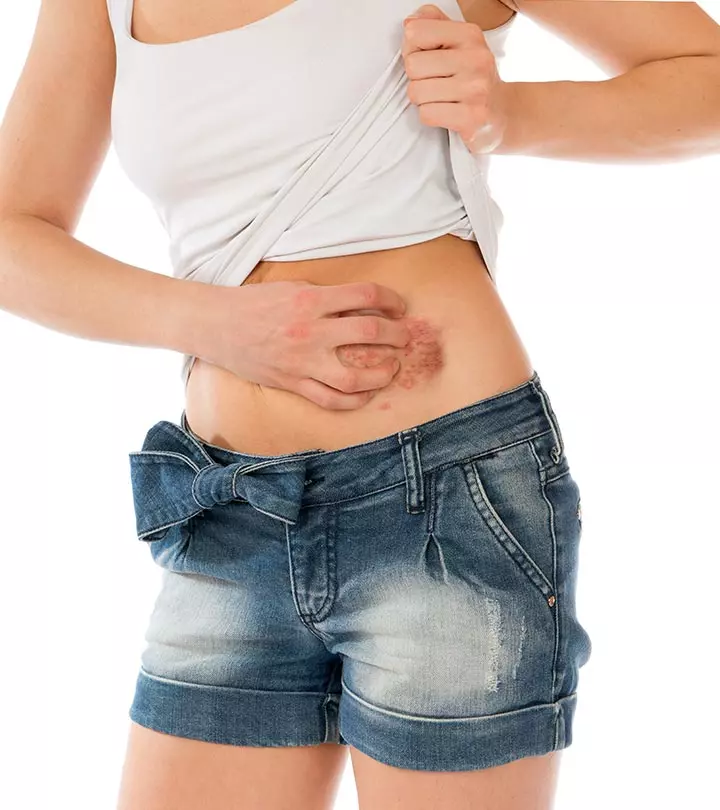
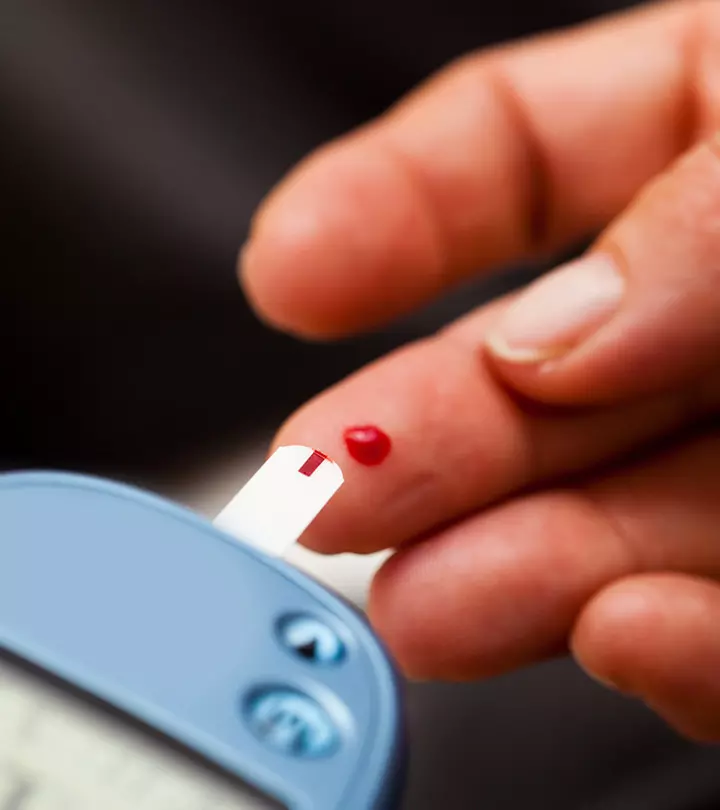




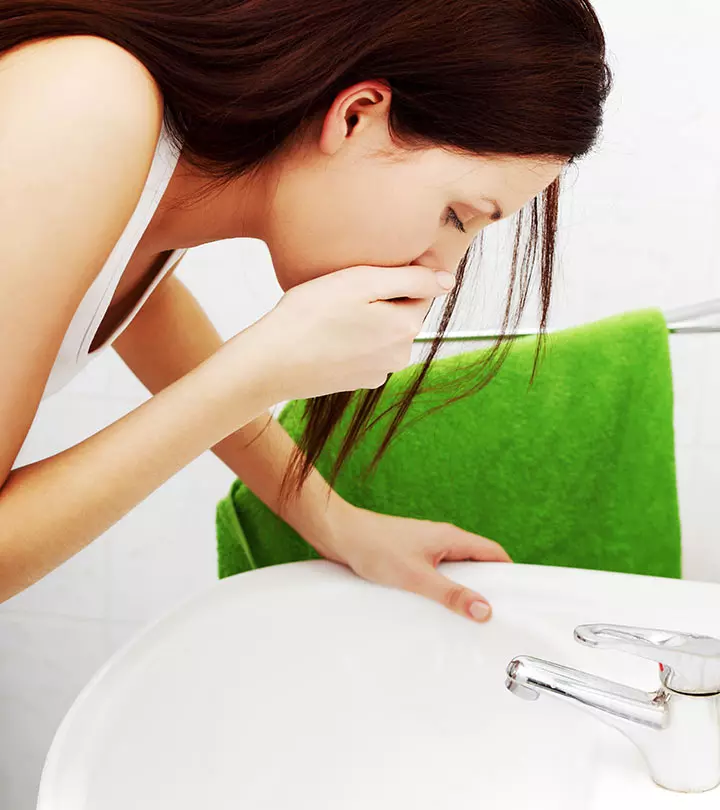

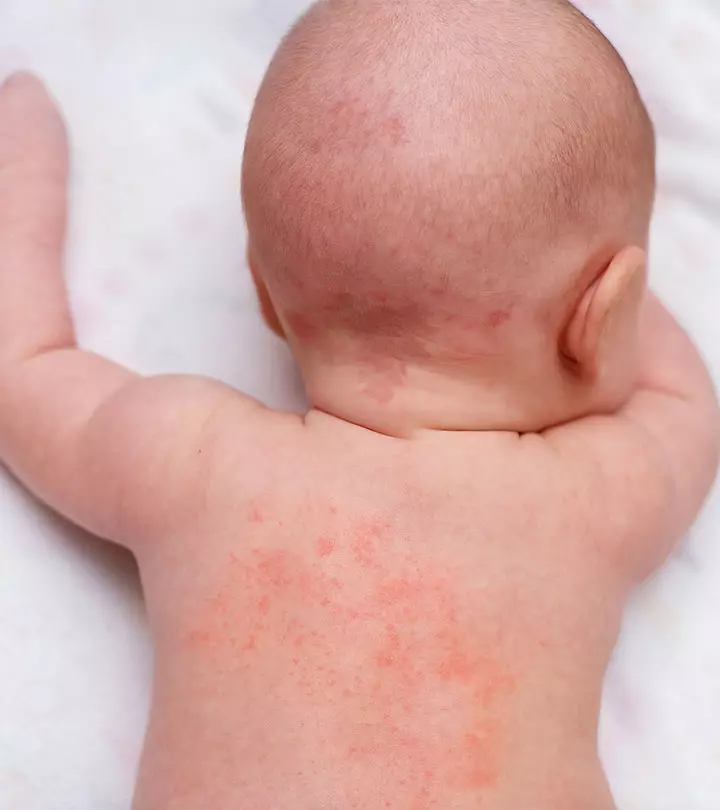



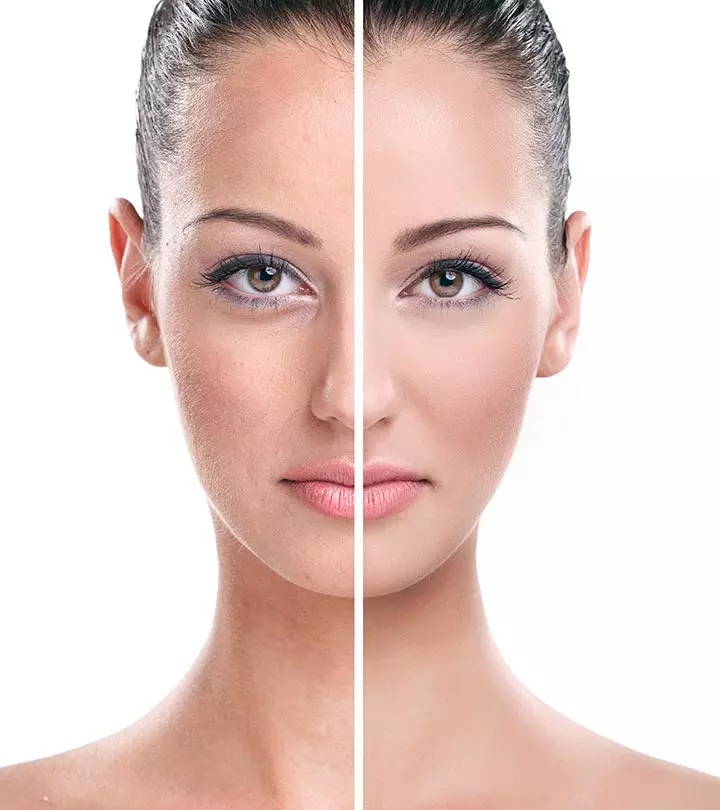
Community Experiences
Join the conversation and become a part of our empowering community! Share your stories, experiences, and insights to connect with other beauty, lifestyle, and health enthusiasts.